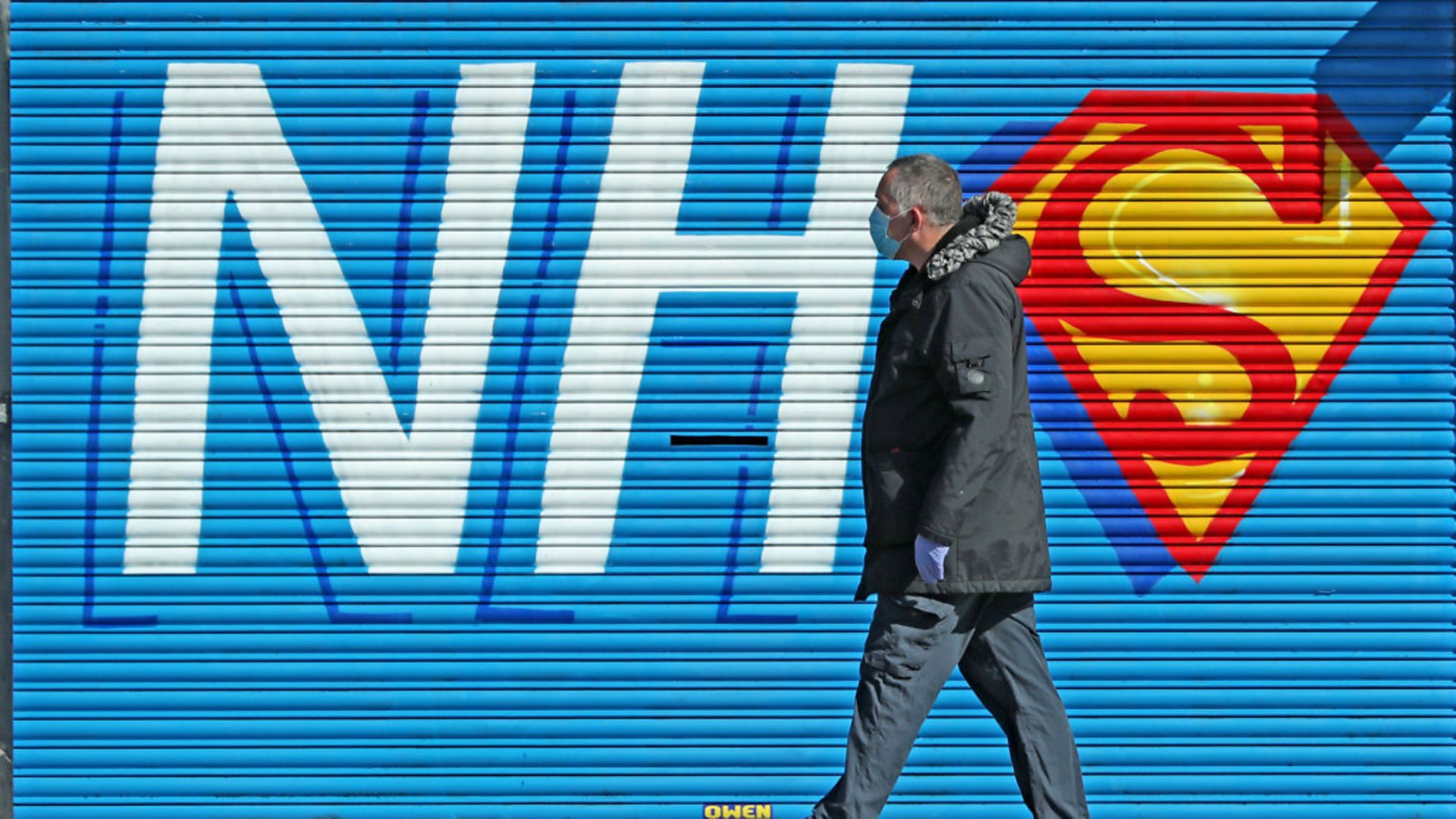There has been a lot of talk over the last decade or so as to whether there is some problem of intergenerational conflict – perhaps even warfare – between millennials and those who went before.
Advocates of the framing point to the accumulated wealth, secure housing and gold-plated pensions of baby boomers and contrast it with millennials’ lot in life. Critics suggest that the idea of generational conflict indicates that parents and their (adult) children are somehow aligned against each other, and dismiss that as ridiculous. We should, they argue, keep our focus on class alignment instead.
Let us try to end at least one debate: if there was ever any kind of generational conflict involving millennials, we lost. We didn’t lose narrowly – we lost, comprehensively, years ago. If we haven’t noticed that by now, we are as short-sighted as certain older columnists sometimes suggest we are.
Take the career of a millennial who graduated in 2008 – not a difficult task in my case, as this happens to be the year that I left university. After being one of the first students to incur the new £3,000-a-year fees (rather than the £1,000 that went before), your entry to the job market coincided with the most alarming financial crash since the Great Depression.
Offers of graduate jobs were revoked as thousands of staff were laid off. The world scrambled to prevent total financial collapse, with governments eventually landing on the desperate solution of blowing up their balance sheets by borrowing billions to keep the system afloat.
With the economy barely stabilised and recovery anything but certain in 2010, there was then a change of government – and the new coalition administration decided to handle a once-in-a-lifetime (hah!) surge of borrowing by making swingeing day-to-day cuts. These austerity years starved the economy while also causing problems for public services, and the withdrawal of financial support that millions had relied upon for years.
Then – you know what’s coming next – just as there were whispers of ending the austerity era, David Cameron opted to hold a referendum on whether the UK should quit the European Union. When the country narrowly voted Leave, the very idea alone was enough to crash the British pound to its lowest value in living memory.
As businesses (and trading partners) started to learn what the UK wanted from Brexit, and what it wouldn’t accept, confidence plunged even further – leaving the UK economy demonstrably smaller than it otherwise would have been.
So far, so bad – but then came the pandemic, and with it the need for the government to once again jettison all concerns about its balance sheet and spend, spend, spend. In this case, the sacrifice was in a good cause: to protect people with clinical vulnerabilities and (predominantly) older adults. The biggest burden of lockdown came on millennials and those younger (especially those in school), the very people who had the least to benefit from it.
Eventually came the vaccine, but before anyone dared to try to suggest a return to any kind of business as usual, Russia invaded Ukraine, exacerbating an energy crisis that was already fomenting. The potential of millions of families shivering all winter prompted yet another opening of the government coffers – and even with that millions are struggling.
None of that history of the last 15 years will come as a shock to anyone – but it is important to see it all together. There are people who have been in the workforce for 15 years now, who have known nothing but constant economic and political crisis. We have experienced only bust. “Booms” we only really know about from our half-remembered university classes – or as the reason that we can’t buy a house anywhere near where we can get a good job.
This isn’t just a case of a bad decade-and-a-half of our overall lives. As the Institute of Fiscal Studies has said (again and again) we have had an unprecedented lack of wage growth in the UK since 2008 – a period of stagnation now followed by real-terms cuts in our wages thanks to spiralling inflation.
That has lifelong effects: most research suggests the majority of pay rises you receive over your career will come in the first decade or so you’re in the workforce. There will be exceptions, but on average millennials will have permanently lower wages as a result.
A millennial graduating in 2008 is now in their mid-to-late 30s, but only a minority own their home – and far less than the two generations that went before. Everyone who is older “knows” how difficult it was for them to buy their house – especially if they were Gen X, going just 10-15 years before but the reality that for many it has gone from hard to impossible is simply missed.
Without either economic or housing security, more millennials have waited before having children. As older millennials approach 40, it is not all that long before those decisions become final for some families – it would seem bizarre if a larger portion of adults become childless by choice in these circumstances. This might generally be regarded in the media as a cultural choice, but the economic realities shouldn’t be ignored either.
That lower birth rate plays into everything that we millennials can expect to happen next. Ultimately, it is the next generation that pays for the retirement healthcare and pensions of the one that came before. You might have “paid in” all of your life, but the government spent what you paid in long before you ever retired. There is no pot with your name marked on it.
Businesses had this reckoning long ago: the final salary pensions of current private sector retirees are a distant dream. On private pensions, millennials will get what they pay in, plus the pittance their employers top it up with. When it comes to state pensions, who knows what we will get?
Few millennials believe the vaunted triple-lock will still be in place when we retire (it is definitionally unaffordable in the long-term, as it can only ratchet upwards). If there are fewer working adults for each retiree, this pressure only increases. Last week it was reported the government plans to increase the retirement age to 68 by 2035, a decade or so earlier than it had planned to do so. That leaves a lot more time for it to go up once again before millennials retire – even as life expectancy has stopped increasing.
There is also the matter of debt, and not just of the financial sort. Despite all the pain of the last 13 years, and the accompanying collapse of the public sector, UK government debt has skyrocketed. That need not be a disaster on its own, but when interest rates are higher, it costs us more.
Worse still, there are limits to how much the market is comfortable with letting the UK borrow – the panic when Liz Truss’s budget was announced is absolute proof of that. The emergency rip cord has been pulled three times in 15 years: for the financial crash, for coronavirus, and for the energy crisis. We are approaching the limit of what we can do for the next disaster, or the one after. At some stage, a generation is going to be left holding the bag.
While we millennials are accepting our status as bagholders – a term of art for the person left with the mess at the end of a crash – we should think about the ultimate bagholding: the heavy lift of preventing catastrophic climate change is still ahead of us. Society is making the easier steps now, but has chronically under-invested and ducked the hard decisions.
The big changes, the big sacrifices, and the big effort is still ahead – and that’s without considering any of the debates around mitigating the effects of climate change, compensating the countries that are most affected, and managing the effects of global climate refugee movements. When it comes to climate, our hard times are ahead.
None of this is to pretend the world is without joy. It is generally quite a fun thing to be in your 20s and 30s, and that did not stop over the last 15 years. Smartphones are pretty great, and I’m told avocado toast is quite nice, if not worth the column inches wasted on it. Some millennials have been perfectly successful, and some have been boosted thanks to their parents being winners from what went before.
But there is no battle of the generations – the boomers had won before millennials ever worked out there was a conflict. There is no point shouting at either dad or gran (or your Gen X sibling).
What we do start having to think about is that millennials are about to be the generation with our hand on the tiller – our era as the new and annoying young people is over, that mantle now firmly with Gen Z. But our time as national, business, and charity leaders is imminent (except in America, where the over-70s still run the show). ,
We will still be around for some time to come, so there’s little point repeating the buck passing we’ve inherited. There’s also nothing good to be had from avenging ourselves on our parents. But we should be thinking about how we can best start fixing our toxic inheritance.
Boomers will hopefully be with us for years to come, but as they die, what should we be doing with their inheritances? Surely not reinforcing the wildly unfair inequalities caused by the housing boom. Why not use dedicated wealth or inheritance taxes for climate adjustment, social housing, social care, or some combination of all of them?
Millennials have had a pretty crap 15 years of it, but we’ve had one great luxury: other people to blame. Our generation’s time is coming, and when it does, that luxury is gone. Can we do any better?




